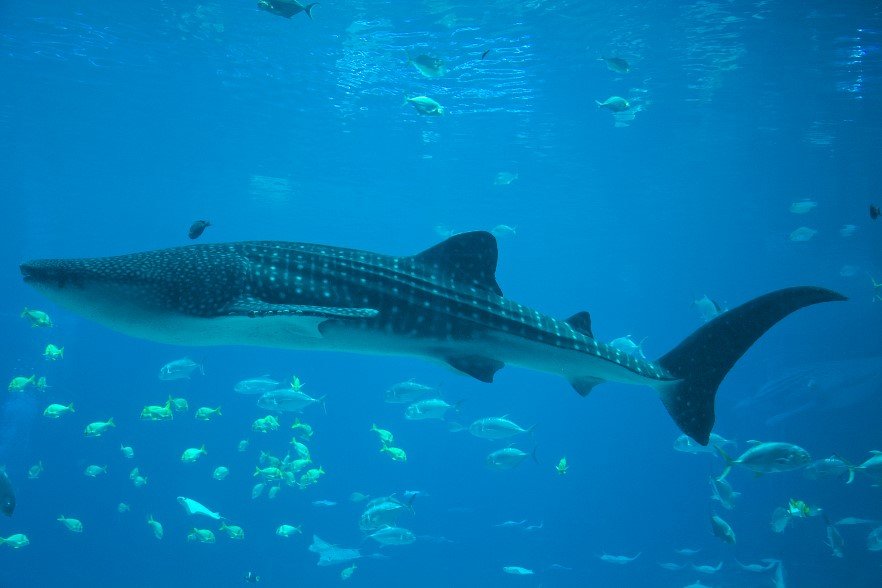Vulnerable to endangered: whale sharks one step closer to extinction

THE WORLD’S BIGGEST fish is one step closer to extinction after having its conservation status updated from vulnerable to endangered on the IUCN Red List.
It comes after a recent assessment revealed significant population declines in whale shark numbers from ongoing human impacts including fishing and boat strike.
Dr Brad Norman, a whale shark scientist with ECOCEAN and Murdoch University in Western Australia has spent 23 years studying the animals, and co-authored the assessment with fellow whale shark scientist, Dr Simon Pierce.
“In our recent assessment, it was established that numbers have decreased more than 50 per cent in three generations – which we estimate to be about 75 years,” Brad explained.
“The numbers on a global scale are really concerning.”

The conservation status of whale sharks was recently updated from Vulnerable to Endangered. (Image: Warren Lynn / Flickr)
Whale sharks (Rhincodon typus) are one of only three filter-feeding sharks in the world, and are highly migratory animals, widely distributed throughout warm temperate and tropical waters, with many congregating each year in Western Australia.
“We protect them in Australia – which is fantastic,” said Brad. “Ningaloo Reef is one of the best places in the world to see them – and in a non-consumptive manner.”
However, hundreds continue to be fished every year in countries including southern China and Oman – often for shark fin soup, where the fin is used and the remainder of the fish goes uneaten.
Brad says the Australian Government needs to set an example and get other countries on board with protecting these animals and policing illegal activity.
“It’s really important to push regional protection and our government to drive other countries to try to save this species for the future,” he said, adding, “because it’s looking pretty bleak at the moment.”
“It’s going to take a national and global effort to bring them back from the brink.”
Due to their cryptic nature, prior to 2000 whale sharks were listed as “indeterminate,” on the IUCN Red List – and there is still a lot of information researchers are yet to find out.
“Whales and dolphins, dugongs and trutles – they come to the surface to breathe and we get to see them,” Brad said. “But whale sharks can dive to the depths so it’s harder to follow them.”
But with ground-breaking new technology, Brad and his team are now able to track the 20-tonne creatures – uncovering information previously unattainable.
“If our research helps in ensuring their long-term conservation, then that’s a legacy we’d like to leave,” Brad said. “A legacy I’d be proud of.”
READ MORE:
- Swift parrot joins ‘critically endangered’ list
- Endangered Aussie bird bouncing back
- The endangered animals of the Aussie Alps




